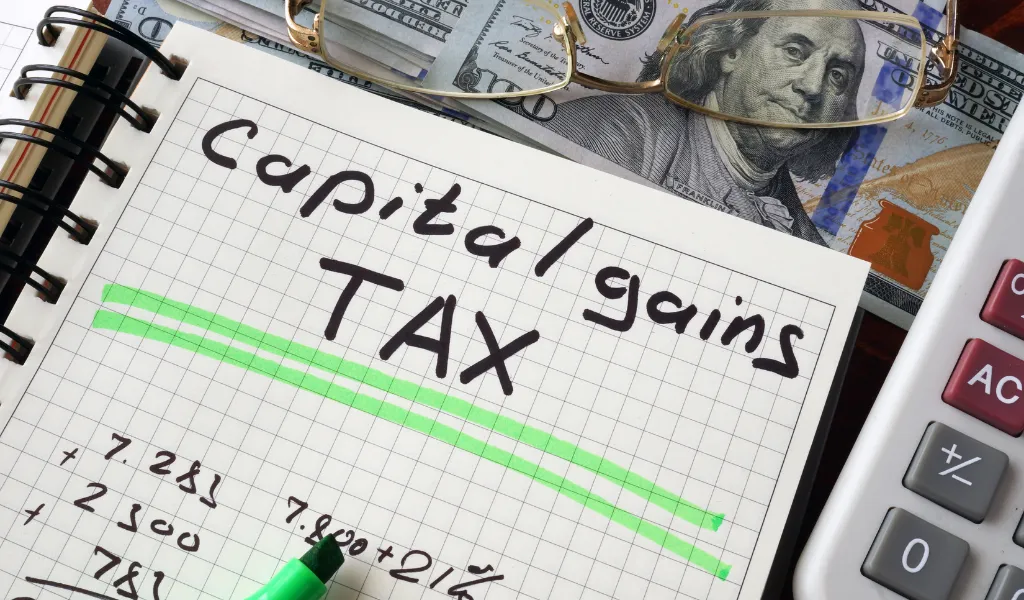For a lot of people, it is difficult to figure out how to save money or invest it. Indeed, it is a challenge to know how and when to spend it. That is why learning to manage your finances is crucial. Everyone’s budget differs according to their personal circumstances. However, there are still general guidelines as to how to manage your money efficiently. This guide will assist you in setting a budget and sticking to it.
First, let us discuss what it means to set a budget.
Setting a Budget
The ideal place for you to start is to figure out how much money is coming your way and going out each way. This includes rent, mortgage, bills, and food. Then, you can find out what is and what is not affordable to you during the month. There is no need to despair if the idea of a budget feels too limiting. You can factor in leisure activities as well. For example, dinner with family or watching a football match with friends. Nevertheless, you should refrain from spending all your income. The good news is that a budget does not necessarily mean boredom. Remember to include unexpected items such as fixing the washing machine or cracked windscreen.

How to Manage Your Money by Setting a Budget
You need to work out how much money you are earning and how much you are spending in detail. Do not leave out any expense. Understanding your finances is essential.
After you find out how much you must spend every month, you can look for opportunities to save money. Thoroughly examine where you can reduce costs if you require it. Additionally, you can create two lists to get a clearer picture. One should have essential items and the other non-essential items. As a result, you can easily calculate how much you will save if you do not spend on non-essential items.
Keep Track of Your Spending
It is important to track everything you spend. It does not matter if it is only for a couple of months. This way, you can see how much your habits are costing. For example, drinking coffee regularly. From there, you can work out how to save further.
Detect Where You Can Reduce Expenses
This is the step where your two lists come in handy. Look at your non-essential items list. You will see how much you can save if you did not spend your income on those items. Often, we do not even realise how unnecessary those things are until we make a budget. Moreover, you should consider shopping around for deals on your car insurance, broadband, and mobile phone contract, etc. You must ensure that you have the best-value contract.
Set a Goal for Savings
Even saving up in small amounts every month can help you build up a significant saving. Make sure you do not get tempted to dip into it. Perhaps you are saving up for a holiday or maybe even for your car insurance. Whatever the reason is, make sure you stay focussed on it!
If possible, then you should top up your savings. Then, you can set aside some money as an emergency fund. This will help manage your money.
Eating Well While on a Budget
Of course, what we eat affects our wellbeing and health. Your nutrition intake matters tremendously. A balanced diet is important for staying healthy and feel your best. Therefore, it is vital that you manage to still eat well while sticking to a budget.
How to Manage Your Savings
If you want to save, then you have plenty of options and accounts available to you. We know it is overwhelming and confusing to know where to start. Not to mention the complexity of financial jargon. Following are the major methods to manage your savings:
Savings Accounts
There are plenty of reasons that people decide to save. They may want to save for holidays, emergencies, a deposit on a property, or retirement. There are various types of savings account. Make sure you know the differences between them so that you can find the right one for yourself. You should look for the best interest rates. Yet, your priority should remain meeting your needs. Please note that there is a limit to the amount that FSCS covers if your bank goes bust. Therefore, do not place more than £85,000 in one bank.
Following are the main types of savings accounts you can use to manage your money:
Easy-Access Account
Staying true to its name, this account lets you take money out whenever you like. You can do so however often you want or need.
Fixed Rate Account
In this account, you can save your money for a fixed amount of time. For example, 1,3, or up to 5 years. The advantage of this type of account is that you will receive more interest. However, once your money is in this account, you cannot add to it.
Regular Saver Account
You can save a specific amount of money in this account each month. Compared to an easy-access account, you will receive a higher interest rate. Nevertheless, you should understand that there are specific rules on withdrawals. Furthermore, the high interest rate only lasts for a year.
Notice Saving Account
Before withdrawing money from this type of account, you must give a notice to your bank. The period for which is 30 to 90 days.
ISAs
There are different types of Individual Savings Accounts (ISAs). They come with the major advantage of not having to pay tax on the interest. Nevertheless, it is possible for everyone to earn £1,000 of interest tax-free annually. Thus, whether ISA is the right choice to manage your money is up to you.
Premium Bonds
You have another way to save money through premium bonds. You will not receive interest on your savings. Instead, you will enter a prize draw every month. Through which you can win between 25 and 1 million pounds. However, you should keep in mind that winning 1 million pounds is highly unlikely. If you want to try your luck, you can invest in premium bonds.
Investments
It is understandable that you find looking at investments to be daunting because there are plenty of ways to invest. Not to mention the risk of losing your money. Investments include pensions, bonds, funds, and shares. If you want to put away your money for a long period, then any of these is a good option.
How to Stick to Your Budget
Unfortunately, after setting a budget, it is quite easy to not stick to the budget. You will end up going back to autopilot. To stay on track, you should do the following:
1. Reduce the Cost of your Debts
Existing debts are likely an expensive drain on your budget. Especially on credit cards. Since most credit card providers tend to charge APRs of up to 19%, it can lead to a substantial amount. In the long run, an ordinary amount is going to cost you greatly.
You can cut your interest costs drastically by taking out a 0% balance transfer credit card. Then, it is possible to pay off your debt faster. Consequently, the process of balancing your budget is going to speed up.
To prevent being charged at the standard APR on the remaining balance, you should clear your debt before the 0% period ends.
2. Cut your Bills by Haggling or Shopping Around
You can try to cut down the cost of essential household items if your budget is not balancing. Or if you need some extra cash. By making these changes, you are not going to feel deprived. However, you will get to keep more cash in your pocket and manage your money as you wish.
Therefore, there is no need to just accept the renewal quotes you get for insurance and utility bills. You can shop around to check what the offers from other providers. Moreover, you can haggle with your current provider. Test out how low they are willing to go to retain you as their customer.
3. Restrict your Leisure Spending
You need to cut back on non-essential spending if your budget is still not balanced. To do so, you must prioritise activities that bring you the most joy and spend less on anything that is not offering you good value. The extent of the cutback depends on your personal circumstances. So, if you want to mange your money effectively you must prepare to cut back drastically.
It is challenging to cut back on purchasing new items and going out. However, it is necessary. Failing to do so will mean a more difficulty in the future. Please note that you will end up with expensive debts if your budget is out of balance in the long run. Then, it will take you a long time to clear them.
4. Make Extra Money Where Possible
You need to consider new methods to increase your income so that you can complement cutbacks in your spending.
First, you must ensure that the investments and savings which generate part of your income are performing well.
Additionally, if your employment contract permits freelance work, go for it. Ask yourself if there are any ways you can use your skills to generate additional income. You can do it in your spare time. However, you should remember that you must file a Self-Assessment Tax Return if you are earning income through freelancing.
You also have the option to rent out your spare room. Or you can sign up to rent out your car when you are not using it. Also, you can sell items you no longer want on online markets. For example, eBay.
Changing your routine in simple ways can help you generate extra cash each year. An example, as such is using a cashback credit card as an alternative to your debit card for daily spending. In this case, you pay back what you spend every month.
5. Divide Your Money into Several Pots or Accounts
To avoid overspending in one area, you should separate your income into portions and deposit them into different pots monthly. You can divide them according to use, such as one for spending on yourself and the other for bills.
For this purpose, some people decide to open a second current account. That is, if they do not have a spare one already. You can create these posts within the same account with some banking apps. An example as such is Monzo. This way, you can manage your money easily.
If you are likely to lose track of how much money you have left for leisure spending each month, then it is a suitable technique for you. However, with this ‘jam jar’ or ‘piggy banking’ method, you need to familiarise yourself with features of your banking app. Moreover, several sets of bank statements are under your surveillance.
6. Check All Your Accounts in a Single Place
If you want your budget to remain balanced, then you must keep an eye on what money is coming in and what money is going out of your account monthly.
Add different bank accounts and credit cards to the mix, and there goes all your time.
It is simpler for some people to use apps with open banking to manage their budget. With open banking, you can get an overview of various bank accounts and credits cards in a single place. It is an excellent way to manage your money.
7. Revaluate Your Budget Regularly
Lastly, to manage your budget successfully, you must ensure you revisit it. Not only this, but you should revise it regularly. Your budget requires amendment according to the changes in your personal circumstances.
It is ideal to revisit your budget every month. As a result, you will notice immediately if you are continuously overspending. Then you can readjust before it has a drastic impact on your financial goals.
Your budget needs reworking if you get a pay raise or promotion. If you fail to take account of it, then you will end up spending it randomly. As a result, you will not make the most of it.
A change in your situation that affects your finances requires you to look at your budget. You must check how it can accommodate it.
Conclusion:
To summarise, setting a budget is the initial step. The hard part is sticking to it. It is very easy to lose track and go back to overspending. That is why you must follow the tips mentioned above to balance your budget successfully. Learning to manage your money is important not just for your present, but for your future as well. If you start following a budget today, it will pay off in the long run.








